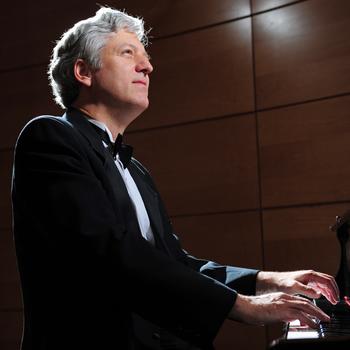Dedicated to performing every note ever composed by Frédéric Chopin, the internationally celebrated pianist Brian Ganz continues his quest in Romantic Revolutionary at the Center for the Arts on May 4. Maryland Theatre Guide notes that when attending a concert by Brian Ganz, audience members are sure to be enraptured by “one of the foremost pianists of his generation.”
Watch the preview below for a look into musical mastery at its finest with Ganz’s performance of Chopin’s fiery “Revolutionary” étude Op. 10, No. 12, which will be performed at his May recital.
Learn about composer Frédéric Chopin and Brian Ganz’s upcoming May program with these fun facts:
-
Born to a piano teacher mother and flutist/violinist father, Chopin was unsurprisingly musical at a very young age. At age six, he composed and wrote poetry followed by his first public concerto performance at age eight.

Brian Ganz: A Chopin Recital performs at the Center on May 4. -
The tempestuous “Revolutionary” étude Op. 10, No. 12 was inspired by the failed November Uprising of 1831 in which Russian forces overtook Polish mutineers who challenged Russia’s reign. Due to illness, Polish composer Chopin was unable to join the Uprising and avoided likely death. In response to this, he composed the piece we know today.
-
When Chopin composed his first Ballade, it was considered a novelty at the time, as the term “Ballade” at the time had never been used in association with solo piano. Over 11 years, Chopin wrote four Ballades, including Ballade No. 1 in G minor, Op. 23, which will be included in the May 4 program by Brian Ganz.
-
The term “scherzo” in Italian translates to “joke” or “jest” which remains an inspiration for musical Scherzos, as the style typically includes light and lively movement. In May, Ganz will perform one of Chopin’s four Scherzos: No. 2, Op. 31 in D-flat major.
-
Chopin demonstrated an interest in folk music through his creation of 57 Mazurkas, a word which came from three Polish folk dances including the mazur, kujawiak, and oberek. For avid fans of Chopin’s Mazurkas, watch the video below of a traditional mazur dance routine and see if you can note any similarities with Chopin’s compositions:
The Center for the Arts is proud to co-present this performance with George Mason University’s Reva and Sid Dewberry Family School of Music.
